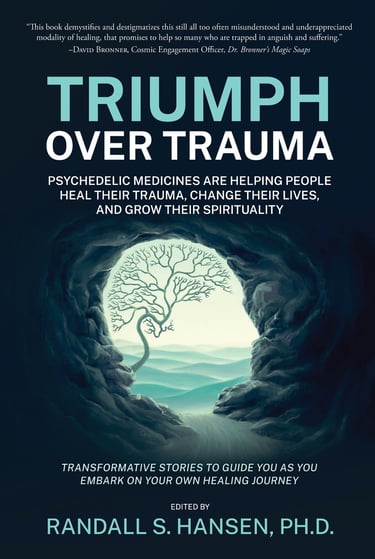Do's and Don'ts of Healthy Dieting: Eat, Exercise, and Lose Weight
At some point in our lives, the vast majority of us go on a diet to lose weight, get in shape. Here are key rules, do's and don'ts, of healthy dieting.
We need to change how we look at foods, diets, and healthy living.
Let's face it. We're a society that likes to eat -- and too often eats bad things, typically because of our busy lifestyles. And all too often those busy lifestyles do not include exercise... leading to periods when we decide it's time to examine our bad eating habits and make some changes to our diets. Thus, dieting begins.
What are some of the key guidelines you should follow for healthy (and safe) dieting?
Read These Do's and Don'ts of Healthy Dieting
Don't be misled by all the wrong nutrition information we have been fed by the government and "helpful" nutrition experts. The Food Pyramid is upside down -- and we have been given the incorrect nutrition information for many decades.
Do understand that the best diet is actually a permanent lifestyle change. It's not healthy going on a diet and then going off a diet and then going on a diet, with your weight going up and down -- the dreaded yo-yo effect. More than three-quarters of people who lose weight on a diet regain the pounds after their diet ends. So, don't think temporary diet -- think permanent lifestyle change... eating healthier and incorporating exercise into your daily life.
Don't fall victim to a fad diet. A healthy diet should allow you to lose about 2 pounds per week -- anything more is dangerous and you should avoid any diets that claim unrealistic (and unhealthy) results. Diets that focus on pills and potions or denial and serious food limitations result in massive boomerang effects in which you gain more weight than you lost.
Do find a diet that works best for you and your body. Everyone's body reacts differently, so you'll have more success with one type of diet over another. The key is finding one that you can live with -- and that works for you. And once you find a diet that works for you, do be realistic about your weight loss goals and patient with your weight-loss results.
Don't eat or snack in front of the television or at your desk -- and don't eat standing up -- or on the run. Give what you're eating your full attention and savor it and help your mind and stomach work together. I call this technique Mindful Eating. Eating while you're distracted or in a rush will have you snacking more, putting on the pounds rather than taking them off.
Do drink plenty of water and other healthy fluids -- especially when dieting. Drinking water throughout the day is invaluable in so many ways, as the water helps us replenish our bodies. During dieting, drinking a glass of water when you're hungry -- and especially before meals -- will help you feel more fulfilled. Don't drink too many diet sodas -- and especially don't drink any sugary sodas, sports drinks, and energy drinks.
Don't give up if you fall off the diet wagon -- mistakes happen. Take the slip in stride and don't let it change your determination and plan to lose weight and obtain better health. It's easy to find excuses to stop dieting and go back to the same old bad eating habits, so don't let it happen this time. If you slip, just pick yourself back up and move on with your dieting plans.
Do incorporate exercise and fitness into your lifestyle. You should dedicate at least 30 minutes a day to fitness -- at least an hour when you are trying to lose weight. Start with something simple like walking. You can easily add more steps to your day in addition to a walking program. (Learn more in our article, Walking Tips for Life.) You can add biking, swimming, dancing, and strength-resistance exercises too. Strive for both aerobic and strength workouts -- but always get a doctor's approval before you start.
Don't eat fast foods and other overly processed foods -- even when you are not trying to lose weight. These products are typically filled with toxic sugars, fats, and chemicals.
Do consume smaller portions -- often that is the only diet you need. Want to lose weight -- and maintain that weight -- without going on a diet? Eat smaller portions for all three meals.. or consider skipping some meals, such as eliminating breakfast (for a longer fasting from foods) or consider combining lunch and dinner for a linner in the middle of the day.
Don't starve yourself by drastically reducing your daily calorie intake. Calorie counting is outdated and should not even be considered with dieting. Do focus on healthy, real foods.
Do replace that evening snack with something different, such as meditation time. While some diets are very strict about eating anything after dinner, it is a good idea not to eat anything three hours before going to bed... so, if you are used to snacking then, replace the snack with something fun, but different -- and you'll soon forget about those late-night snacks.
Don't give in to temptation -- willpower is important. You can't succeed at achieving any goal if you don't have the determination and willpower to make things happen. And do know that some of many fast foods and store-bought foods are addictive because of how they are made. A diet is a struggle, but if you keep focused on the goal, you'll be able to rise above tempting treats.
Do reward yourself for reaching dieting goals -- even if it a sinful indulgence. Just as with any other life goal, you'll have more and longer-term success if you reward yourself for reaching various interim goals. So treat yourself each time you lose another 10 (or 5) pounds. Go to the movies or a ballgame -- or whatever makes you happy.
Don't let the scale or society's view of body images affect how you see yourself. It's important to eat well and get exercise, but there are no rules about what makes the perfect body. We have to live in our bodies -- so it's important that we take care of it and see it as a work-in-progress.
Do consider eliminating other vices, such as smoking and alcohol. If you are going to go to all the trouble of losing weight and getting back into shape, why not go all the way -- especially with smoking -- and kick all your bad habits? Often, bad eating habits are tied to these other bad habits.
Don't go grocery shopping when you are hungry. It's not only true that you will be tempted to buy lots more stuff than you need or should eat on your diet, but also know that 80 percent of the food in grocery stores is ultra-processed junk.
Do add healthy foods into your diet, especially good fatty acids and foods with high levels of antioxidants. One of the problems with our diets is that we eat a lot of previously processed and packaged foods. Instead, go healthy with more fresh fruits and vegetables. See our list in this article, Live Longer. Eat Healthier Daily. Best Foods for You, A-Z.
Don't eat any fast food. Whether it's a Big Mac or a couple of pieces of Popeye's Fried Chicken, the fake foods you can buy from most typical fast food products is something that should be avoided -- by everyone. These foods use the cheapest ingredients (including industrially produced meats and produce) that are harmful for you, with massive amounts of added sugars, pesticides, antibiotics, and seed oils.
Do substitute unhealthy foods and ingredients for healthy ones -- starting with ridding yourself of the sugars, white starches, etc. A good place to start any diet is by going to your pantry and purging it of the many unhealthy items lurking in it, such as refined sugar, white flour, and white rice. Read more in our article, Purge Your Pantry to Pursue Health and Wellness.
Don't eat if you're not hungry. Every person has their own optimal eating schedule, and you need to find yours. Don't eat for the sake of eating -- or on someone else's schedule -- or because you're bored, sad, or angry. The key to healthy eating is only eating when you are truly hungry. Having a craving for something is not the same as being hungry.
Do wait at least 20 minutes after eating before consuming anything more. Eating too quickly fills us up physically the same as eating more carefully and methodically, but it takes the brain at least 20 minutes to get the message that you're full -- which is why many of us overeat.
Final Thoughts on Dieting Do's and Don'ts
Everything you may know about food could be wrong -- and that's not your fault. We have been led to believe that fat and meats are the enemy when it is truly refined sugars and seed oils. You need to do your own research to learn the truth.
Avoid shortcuts and diet foods. You can just as easily use the real foods that are readily available to you (and much cheaper than so-called diet brands) -- simply prepare your meals from scratch with smaller portions and cooking them in a healthy way.
Finally, following these dieting do's and don'ts from this article should go a long way to assisting you on a path toward healthy weight loss.
Change your eating habits and change your life.


Dr. Randall Hansen is an advocate, educator, mentor, ethicist, and thought-leader... helping the world heal from past trauma. He is founder and CEO of EmpoweringSites.com, a network of empowering and transformative Websites, including EmpoweringAdvice.com.
He is the author of the groundbreaking Triumph Over Trauma: Psychedelic Medicines are Helping People Heal Their Trauma, Change Their Lives, and Grow Their Spirituality and the well-received HEAL! Wholeistic Practices to Help Clear Your Trauma, Heal Yourself, and Live Your Best Life.
Dr. Hansen's focus and advocacy center around true healing ... healing that results in being able to live an authentic life filled with peace, joy, love. Learn more by visiting his personal Website, RandallSHansen.com. You can also check out Dr. Randall Hansen on LinkedIn.




